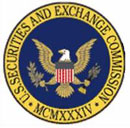| When officer Toshiro Semba revealed his bosses in the police department were forging receipts to wine and dine on the public's money, they took his gun away. He was decreed too emotionally unstable to carry a weapon _ a humiliation, he says, designed to corner him into quitting. For 500 days, he was ordered to sit alone in a tiny room at the Ehime Prefectural Police. "I became a policeman because I wanted to help powerless people. But when I got in, I learned it was totally different," said Semba, 58. He was passed over for promotions after he refused to fake receipts and is still a sergeant after 34 years. "I wear that title proudly _ like a medal," Semba said. Whistleblowers like Semba have been especially solitary in Japan, where conformity and respect for hierarchy are venerated as tradition. They have suffered in silence, labeled as traitors. That is gradually changing. As Japan modernizes, people increasingly see themselves as individuals and consumers, with a duty to speak up against wrongdoing. Whistleblowers are behind the spate of recent scandals embroiling a pastry maker that forged manufacturing dates, a builder that cheated on fireproofing tests and a meat processor that sold a mixture of meats and chicken as pure ground beef. Reports to the government of suspicious food manufacturing, nearly all from insiders, have skyrocketed from some 100 a month last year to 697 last month, food safety official Yosuke Abe said. Semba won personal vindication in September when a court awarded him $8,800 in damages, ruling that his on-the-job treatment was retaliation for his 2004 exposure of police corruption. The police are appealing the ruling. Semba couldn't hold back tears when his court ruling was read. "I felt there's justice in this world," he said. Although the award is small by U.S. standards, it is a major victory in Japan, where court-ordered damage compensation tends to be minimal and the value of whistleblowers is barely starting to be recognized. The first law to protect whistleblowers passed only last year, but critics say it's inadequate. It requires whistleblowers to first tell their employer and wait before going public if they hope to get any protection. Whistleblowers have been rare because Japanese companies, even major ones, are run like families, and individual workers don't see themselves as hired by contract as do American workers, says Koji Igata, business administration professor at Osaka University of Economics. "Whistleblowers are seen as eccentrics who've turned on their parents," he said. Japan modernized over the last half-century by fostering corporate loyalty in return for secure employment. So when a company runs into trouble, good workers are expected to defend it; exposing wrongdoing is viewed as betrayal. Only in recent years, as Japanese companies hire lower-paid younger workers and drop job guarantees in response to global competition, has the idea of criticizing an employer started to catch on, said Igata, who studies U.S. corporate governance. Japan is slowly starting to change as individuals start to see themselves more as consumers and investors, he said. Calls to strengthen corporate ethics are on the rise, partly from grassroots movements but also from companies eager to catch up with the rest of the world in governance standards. The increasing influx of part-time workers has also contributed to eroding the ties of loyalty that discouraged whistleblowers. Akafuku, the pastry maker targeted as a result of a whistleblower, employed about 250 part-time workers, half of its work force. It was shut down after it was found to be reselling unsold pastries shipped back from stores as new ones. Hiroaki Kushioka, who exposed price-rigging at his trucking company 30 years ago, was one of Japan's pioneer whistleblowers. He was confined for years to a closet-like office, denied promotion and pressured to quit. He often spent his time gardening or shoveling snow at work. He sued for damages in 2002, and won a landmark victory in 2005. The attention his court case received has been critical in raising public awareness about social responsibility. "Back in those days, we were seen as informants and rats," said Kushioka, who retired last year. "It may be happening way too late, but finally the idea of the public good is starting to take root in Japan." The biggest corporate scandals of the last decade in Japan were brought to light by whistleblowers _ the systematic cover-up of defects at Mitsubishi Motors Corp., the illicit pocketing of government subsidies at Snow Brand Foods and the cover-up of nuclear power plant defects at Tokyo Electric Power Co. The examples set by high-profile whistleblowers like Kushioka and Semba are providing courage for others to come forward. But Japan still lags behind the West nations in recognizing their status. American whistleblowers can become heroes with book deals and lecture tours. They can even collect a portion of what the federal government recovers if they expose overcharging by contractors. The lonely tales of Japanese whistleblowers are a stunning testament to a culture that is docile on the surface but ruthless to those who dare to question authority. Akiko Tamura, 63, a former public servant who tried to expose the misuse of donations eight years ago, recalls how hard it was to endure yelling from bosses and heckling from co-workers. Akiko Tamura, 63, who eight years ago tried to expose the misuse of donations at a welfare section of the local government in southern Japan, recalls how hard it was to endure yelling from bosses and heckling from co-workers. "I thought about killing myself so many times. I had to watch others get promoted. And I never thought I did anything wrong," she said. Two years after retirement, Tamura still has nightmares. "I don't think I'll ever get over it," she said. Semba, still a railway policeman, says he is donating his lawsuit money to an ombudsman charity because money was never the goal of his career-long battle. But what made it all worth it was an elderly woman, who recognized him at a highway rest stop where he had stopped for a cup of coffee. "She told me, 'You made sacrifices for us. I must thank you,'" he said. "She understood everything." |








